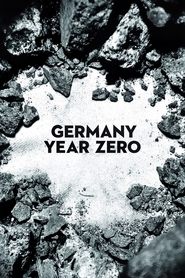"Don't worry; he starved to death", one character says at one point: "That's not contagious." The dark joke is, of course, that due to the severe rationing and acute lack of food in postwar Berlin, the starvation and death of a breadwinner is quite contagious indeed. It is interesting that the two most effective scenes in this film are when it jumps out of 'strict' neorealism as it is usually understood today: first, when a recording of Hitler's voice rings throughout the utterly destroyed Reich chancellery, juxtaposing the bombast of his message with its near-apocalyptic result; and second when the organ plays out of the church which we soon realise does not have a roof (and is thus, perhaps, closer to God). There is a certain sense in which these two ideas rhyme, too, somehow heightening their impcat. Anyway, I'm glad Roberto Rossellini's later films didn't treat women so dismissively; the daughter's concerns about her hair dryer and her bathroom scales ("to check my weight") seem almost calculated to distance a modern viewer.
How we interpret this tragedy is a direct consequence of how we watch it, and how we watch it depends largely on how much we regard it as the personal expression of a particular auteur—and how much, neorealistically, as a reflection of the time and place where much of it was shot: Berlin, August and September 1947. The fact that a portion of Germany Year Zero was shot in Rome between November 1947 and January 1948—even though the story throughout has the same postwar Berlin setting—may complicate our grasp of what neorealism consisted of, but this is only part of the conundrum. [The film is] something closer to a cry of pain than a carefully worked-out and conceptualized statement, and this is what grants it a lasting authenticity.
— Jonathan Rosenbaum (Criterion)
Aside from Vigo, Rossellini is the only filmmaker who has filmed adolescence without sentimentality, and The 400 Blows owes a great deal to his Germany Year Zero.
— François Truffaut (1963)

